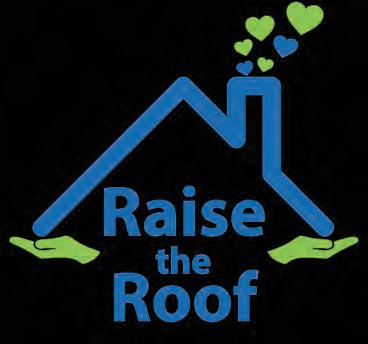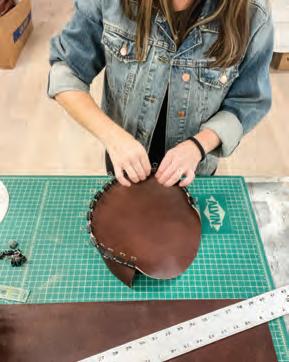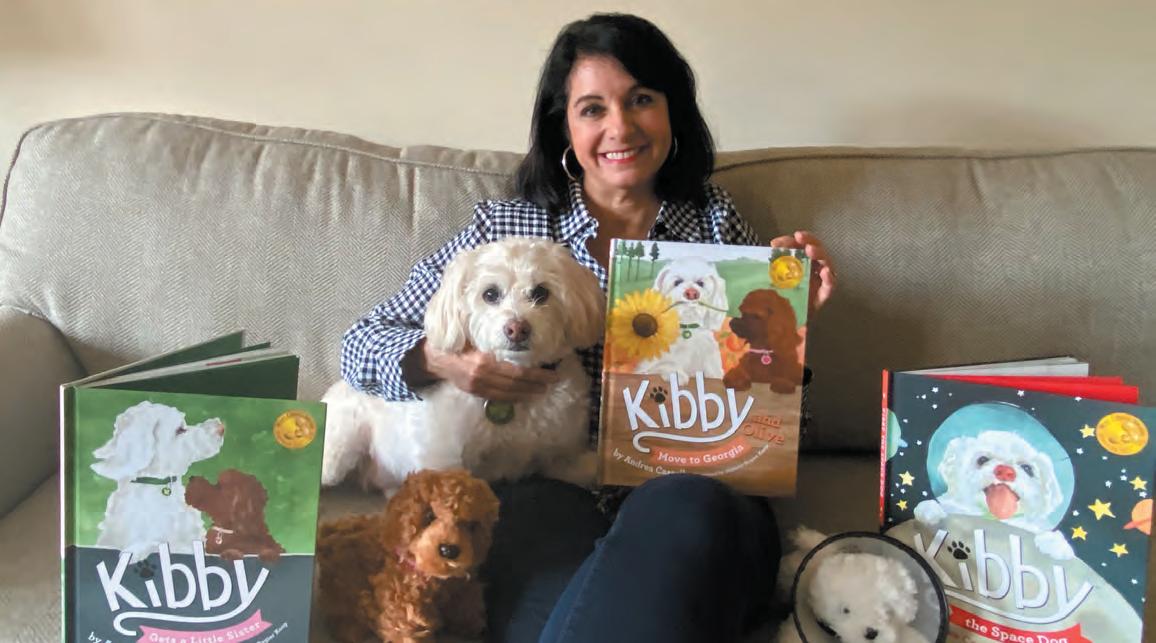
3 minute read
Finding Magic
Inside the imaginations of four local children’s book authors.
STORY BY CHIP R. BELL
I“I write children’s books because there are no unicorns
in adult literature, and today’s world needs unicorns.” The quote came from renowned children’s book author Jackson Pearce at a recent weekend Writers Retreat sponsored by Georgia Writers Museum. It was her answer to the panel moderator’s question, “Why do you write children’s books?”
The myth is that authors of the beloved genre write because they love children. Some do. But some of the greatest children’s book writers – A.A. Milne (Winnie the Pooh), Dr. Seuss (Green Eggs and Ham), Maurice Sendak (Where the Wild Things Are), Shel Silverstein (A Light in the Attic), and Raymond Briggs (The Snowman) – had little use for kids.However, the most common answer to the “Why” question is the Jackson Pearce sentiment – a devotion to the magic that engenders hope and humor.
“In children’s stories,” says Greensboro children’s book author Kerry Batchelder, “Animals talk freely with one another, ants hold carnivals, and birds have bird bath parties. Even the sky has no limits as colors explode, starlights burst, and scarecrows dance in brilliant sunlight with multi-colored bows and shiny bells woven among their golden heads of straw. It is a whimsical genre of granted wishes, happy characters, and bountiful treasures.”
Eager to learn the thinking of children’s book authors, I interviewed four authors who live in Lake Country – Kerry Batchelder (A Grandma Batchie Book Series), Andrea Cassell (The Kibby Book Series), Crystal Daniel (Chrissy’s Magical Moment), and Brinkley Pound (When Eva Hollers). Here is some of the magic we found in their answers.
Where is the origin of your best ideas for a children’s book?
Crystal: When I hear children pretending to be superheroes, princes, princesses, and more, I want to continue creating that imagination for them.
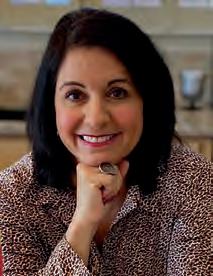
Kerry: My inspiration for children’s stories has always come from an observation or a spontaneous idea.
Andrea: My dog, Kibby, inspired me to teach children life lessons as seen through his eyes.
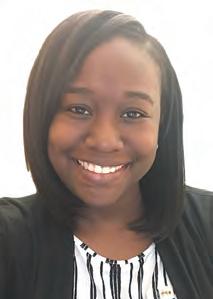
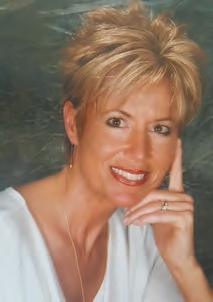
Brinkley: The best ideas come from what I see and hear and how that makes me feel.
Briefly describe your writing process (when, where, how, etc.)
Crystal: Early in the morning, the world is still quiet, and I have that time to brainstorm on my couch. I have an office space, but my couch is my best friend.
Kerry: In the evening, with my feet up and a cup of tea, or in the wee hours of the morning with a hot cup of coffee. Both are relaxing environments in which my mind can easily wander.
Andrea: I like to write in a very quiet place, not my home. I prefer to write my thoughts on notebook paper with a pencil. I also put a pad and pencil by my nightstand as sometimes the best ideas come to life when my mind is most relaxed.
Brinkley: If I had a process, I would be much further along on my other books!
What does it feel like when you are in the middle of writing a story?
Kerry: The story consumes me as I sit in quiet consideration, envisioning, writing, deleting, and rewriting the content. Lost in the storyline, something may tickle my fancy and make me laugh or leave me shaking my head and starting over.
Crystal: While in the middle of writing, I honestly feel a sense of calmness. I compare adult life to a raging sea because it has its stressful moments. But when I begin writing, the waves calm and I’m able to dive into another world in which I can take my mind off the real world.
Andrea: I feel an urge to finish the story and feel that great sense of accomplishment.
Brinkley: I cannot honestly answer this question as I have yet to find the beginning, middle, and end of my writing!
What is the most challenging part of the writing process?
Kerry: Completion is the most challenging part. I am a perfectionist and want every aspect of the book to be as accurate as possible.
Crystal: The brainstorming session. I am constantly asking myself: Is this appealing to children and will this leave a long-lasting impact?
Brinkley: Starting is the challenge. I have lots of ideas and notes but trying to find the very first word or phrase to start a story is the hardest for me.
Andrea: Creating the story so it’s on the child’s level of thinking and pulling the character into their heart.
What is the greatest myth people have about a children’s book author?
Brinkley: It is not easy. What matters is word choice and story length. You cannot get lost in the details but the details matter.
Crystal: Often, people say, “How hard could it be?” But I must make sure the story is captivating and leaving an unforgettable message.
Andrea: The biggest myth is that authors make a lot of money. It’s a job of love and passion.
Kerry: One myth is that you need an agent to publish a book. However, with the right resources, self-publishing a book can be both achievable and fulfilling.
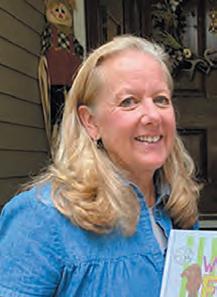
“You can find magic wherever you look. Sit back and relax, all you need is a book!” wrote Dr. Seuss. The treasures found in children’s books come from the special alchemy concocted in the imagination of inspired children’s book authors.
Chip R. Bell is a best-selling, award-winning author and serves on the board of Georgia Writers Museum in Eatonton.

